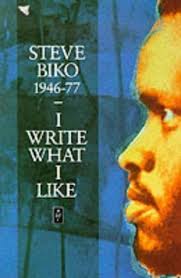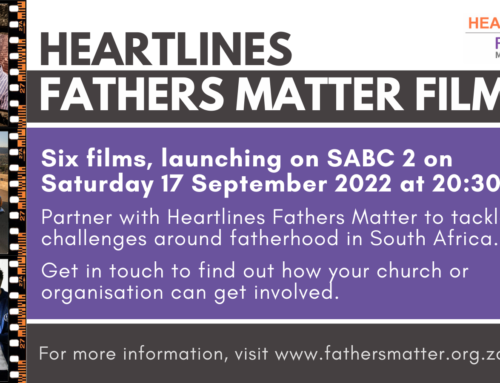This is a hard but necessary passage to share from Steve Biko’s ‘I Write What I Like’ which you should totally get hold of and read in its entirety.
Hard, because it is true. Not true that the black man is inferior, but that the idea of the black man being inferior has been so deeply entrenched in so many of us, that it is an extremely hard and horrible thing to admit to when we see it in ourselves. When i see it in myself…
But somewhere along the line of growing up in an apartheid society, i can see that this idea rubbed off on me. It is a poison i hate to have to admit to, and am not entirely sure of the antidote, except to keep reminding myself daily that it was a construct that the system i grew up in, strongly wanted and enforced me to believe.
This is from chapter 14, titled, ‘Black Consciousness and the Quest for a True Humanity’.
‘It is perhaps fitting to star by examining why it is necessary for us to think collectively about a problem we never created. In doing so, I do now wish to concern myself unnecessarily with the white people if South Africa, but to get to the right answers, we must ask the right questions; we have to find out whether our position is a deliberate creation of God or an artificial fabrication of the truth by power-hungry people whose motive is authority, security, wealth and comfort. In other words, the “Black Consciousness” approach would be irrelevant in a colourless and non-exploitative egalitarian society. It is relevant here because we believe that an anomalous situation is a deliberate creation of man.
There is no doubt that the colour question in South African politics was deliberately introduced for economic reasons. The leaders of the white community had to create some kind of barrier between black and whites so that the whites could enjoy privileges at the expense of blacks and still feel free to give a moral justification for the obvious exploitation that pricked even the hardest of white consciences. However, tradition has it that whenever a group of people has tasted the lovely fruits of wealth, security and privilege it begins to find it more comfortable to believe in the obvious lie and to accept it as normal that it alone is entitled to privilege. In order to believe this seriously, it needs to convince itself of all the arguments that support the lie. It is not surprising, therefore, that in South Africa, after generations of exploitation, white people on the whole have come to believe in the inferiority of the black man, so much so that while the race problem started as an offshoot of the economic greed exhibited by white people, it has now become a serious problem on its own. White people now despise black people, not because they need to reinforce their attitude and so justify their position of privilege but simply because they actually believe that black is inferior and bad. This is the basis upon which whites are working in South Africa, and it is what makes South African society racist.
The racism we meet does not only exist on an individual basis; it is also institutionalised to make it look like the South African way of life. Although of late there has been a feeble attempt to gloss over the overt racist elements in the system, it is still true that the system derives its nourishment from the existence of anti-black attitudes in society. To make the lie live even longer, blacks have to be denied any chance of accidentally proving their equality with white men. For this reason there is job reservation, lack of training in skilled work, and a tight orbit around professional possibilities for blacks. Stupidly enough, the system turns back to say that blacks are inferior because they have no economists, no engineers, etc., although it is made impossible for blacks to acquire these skills.
To give authenticity to their lie and to show the righteousness of their claim, whites have further worked out detailed schemes to “solve” the racial situation in this country. Thus, a pseudo-parliament has been created for “Coloureds”, and several “Bantu states” are in the process of being set up. So independent and fortunate are they that they do not have to spend a cent on their defence because they have nothing to fear from white South Africa which will always come to their assistance in times of need. One does not, of course, fail to see the arrogance of whites and their contempt for blacks, even in their well-considered modern schemes for subjugation.
The overall success of the white power structure has been in managing to bind the whites together in defence of the status quo. By skilfully playing on that imaginary bogey – swart gevaar – they have managed to convince even diehard liberals that there is something to fear in the idea of the black man assuming his rightful place at the helm of the South African ship. Thus after years of silence we are able to hear the familiar voice of Alan Paton saying, as far away as London: “Perhaps apartheid is worth a try”. “At whose expense, Dr. Paton?”, asks an intelligent black journalist. Hence whites in general reinforce each other even though they allow some moderate disagreements on the details of the subjugation schemes. there is no doubt that they do not question the validity of white values. They see nothing anamalous in the fact that they alone are arguing about the future of 17 million blacks – in a land which is the natural backyard of the black people. Any proposals for change emanating from the black world are viewed with great indignation. Even the so-called Opposition, the United Party, has the nerve to tell the Coloured people that they are asking for too much. A journalist from a liberal newspaper like The Sunday Times of Johannesburg describes a black student – who is only telling the truth – as a militant, impatient young man.
It is not enough for whites to be on the offensive. So immersed are they in prejudice that they do not believe that blacks can formulate their thoughts without white guidance and trusteeship. Thus, even those whites who see much wrong with the system make it their business to control the response of the blacks to the provocation. No one is suggesting that it is not the business of liberal whites to oppose what is wrong. However, it appears to us as too much of a coincidence that liberals – few as they are – should not only be determining the modus operandi of those blacks who oppose the system, but also leading it, in spite of their involvement in the system. To us it seems that their role spells out the totality of the white power structure – the fact that though whites are our problem, it is still other whites who want to tell us how to deal with that problem. They do so by dragging all sorts of red herrings across our paths. they tell us that the situation is a class struggle rather than a racial one. Let them go to van Tonder in the Free State and tell him this. We believe we know what the problem is, and we will stick by our findings.
I want to go a little deeper in this discussion because it is time we killed thus false political coalition between blacks and whites as long as it is set up on a wrong analysis of our situation. I want to kill it for another reason – namely that it forms at present the greatest stumbling block to our unity. It dangles before freedom-hungry blacks promises of a great future for which no one in these groups seems to be working particularly hard.’
[For another passage looking at the Internal and External Forces, click here]







Just ordered it. Thanks, Brett!
[…] anyone read this latest extract i posted from the Steve Biko book, ‘I Write What I Like’ and yet it feels like an incredibly […]
[…] [For another passage from Steve Biko looking at Perceived Inferiority, click here] […]
[…] mean reading books like the Robert Sobukwe ‘How can man die better?’ or Biko’s ‘I write what I like’ or Frank Chikane’s ‘No life of my own’ or any one of a number of books written by […]